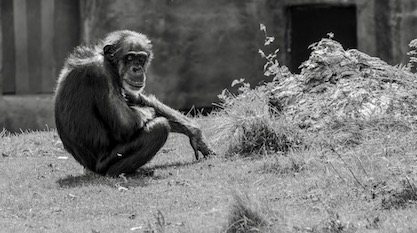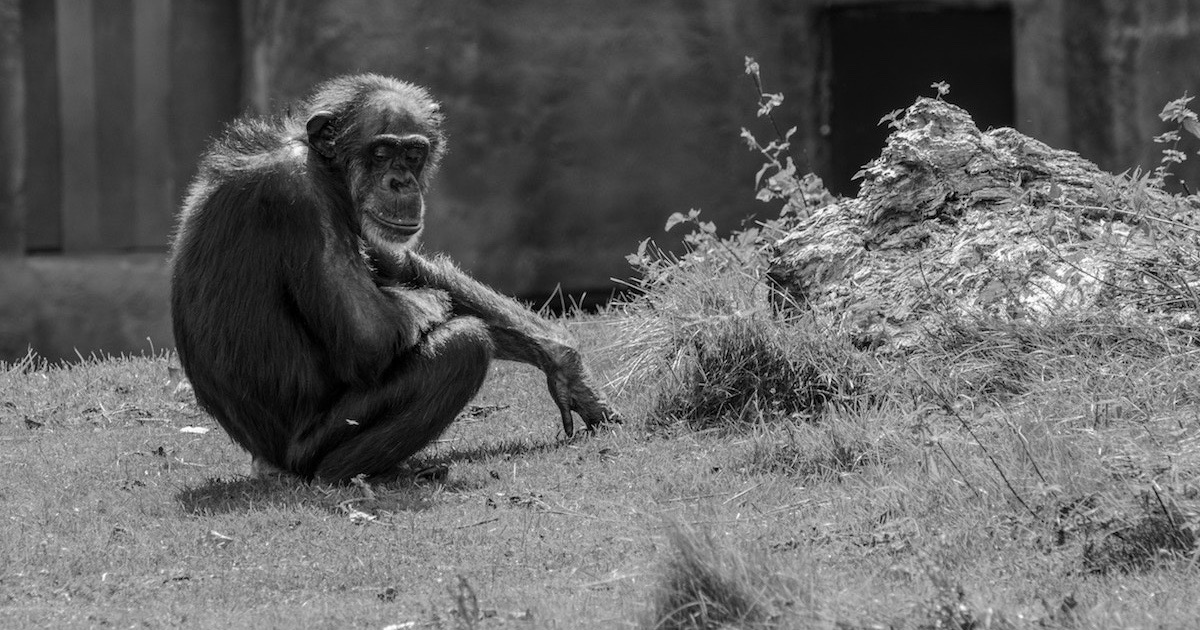 Neuroscience & Mind
Neuroscience & Mind
How Did Religion “Evolve”?


It’s not easy being a contributor to Evolution News. To wit, on Easter morning I had to read this bilge from the BBC:
How and why did religion evolve?
“This is my body.” These words, recorded in the Gospels as being spoken by Jesus during the Last Supper, are said daily at Church services around the world before the communion meal is eaten. When Christians hear these words spoken in the present, we’re reminded of the past, which is always with us, which never goes away. Just how much past are Christians reminded of? … “Think of uber pro-social hunter-gatherers having a meal,” one of my theology professors told me when I wondered about the deep evolutionary history behind the Eucharist. “The hunters feel proud to have done well and shared with their family; those who prepared the food are recognised and appreciated; everyone’s belly is getting filled and feeling good; and so many positive social interactions are taking place. No wonder so much mythological content is built up around the meal.”
Sharing a meal is nice. Ergo, religion.
It seems that apes like meals too:
But food-sharing even predates our Homo ancestors, and is currently observed in chimpanzees and bonobos. In fact, one recent paper even documented research of bonobos sharing food with bonobos outside of their own social group. Barbara Fruth, one of the study’s authors, told the digital magazine Sapiens that meal-sharing “must have its roots in our last common ancestor”. Based on the molecular clock, the last common ancestor, or LCA, of humans and Great Apes lived about 19 million years ago. When I hear the words “This is my Body,” then, my mind immediately launches into a race to the evolutionary starting line, if you will.
I think of other things when I hear “This Is My Body.”
An Adaptation or a Spandrel?
The author, journalist Brandon Ambrosino, wanders off into a discussion as to whether religion is an adaptation or a spandrel. Does belief in God arise because it helps us in the struggle for reproductive fitness (“Don’t use that birth control, honey!”) or because, while it is adaptatively neutral, it is linked to adaptation (“I met a really cute girl at Mass today!”). Of course, if Darwinism is true, how is one to know? “Natural selection” has no mind and thus no purposes, and adaptation is really just the consequence of internal biological constraints and natural history.
So evolutionary “research” is just story time, not much different from fables told to children except that you (the taxpayers) pay for the stories. The meter is always running.
Apes on the Savannah
Ambrosino prattles on about apes on the savannah:
As our ape ancestors moved from receding forest habitats to more open environments, like the savannahs of eastern and southern Africa, Darwinian pressures acted on them to make them more social…
He wanders into neuroscience:
Although the neocortex figures prominently in many theories of the evolution of religion… the more important alterations concerned the subcortical parts of the brain, which gave hominins the capacity to experience a broader range of emotions. These enhanced emotions promoted bonding, a crucial achievement for the development of religion…
And he meanders into ape psychology:
[T]he promotion of solidarity requires positive emotions — so natural selection had to find a way to mute the negative emotions and enhance the positive ones, Turner says. The emotional capacities of great apes (particularly chimpanzees) were already more elaborate than many other mammals, so selection had something to work with.
A surprising amount is known about prehistoric ape psychology (Leakey must have found some fossilized psychologists’ notebooks)!
Second-order elaborations are even more complex, and occurred in the evolution from Homo erectus (1.8 million years ago) to Homo sapiens (about 200,000 years ago). Guilt and shame, for example, two crucial emotions for the development of religion, are the combination of sadness, fear, and anger.
He quotes primatologist Jane Goodall about ape “spirituality” (I kid you not):
These observations have led her to conclude that chimpanzees are as spiritual as we are. “They can’t analyse it, they don’t talk about it, they can’t describe what they feel. But you get the feeling that it’s all locked up inside them and the only way they can express it is through this fantastic rhythmic dance.”
Apes are certainly reticent to talk about their faith. Primatology research never rests.
Religion is an embodied phenomenon because the human religious way of being has evolved for millions of years as the bodies of our ancestors interacted with the other bodies around them. Whether or not one takes communion or even feels religious, we are at all times navigating our social worlds with our evolved capacities to play, to empathise, and to celebrate rituals with each other.
After tedious digressions into ape piety and neocortical enhancement, Ambrosino sums it up.
Apes have bodies and do stuff. So do people in church. Ergo, religion evolved.
*Sigh*.
The Genetic Fallacy
Of course, the unspoken predicate of evolutionary theories of religion is that explaining religious belief as evolved behavior in some way tells against God’s existence. This silly argument is merely the genetic fallacy — the fallacy that the truth or falsehood of a claim (“God exists”) is determined by the origin of that claim (“religion evolved”). The preponderance of evidence regarding human adaptation and biology would seem to suggest the opposite: we have senses and perceptions that enable us to connect to reality. So religious belief enables us to connect to reality — to God — in an analogous manner. But all of this presupposes that evolutionary arguments about the origin of religion are scientific and logical, which they are not.
It’s telling that one kind of evolution always seems to be missing from these “theories” about the evolutionary origins of religion. How did atheism evolve? Surely godlessness had its origins in neocortices of impious apes. Why did some apes evolve to become materialists, Darwinists and atheists? It certainly seems maladaptive — it’s doubtful that contemplating the Origin of Species makes you more fecund.
Perhaps it was the autistic apes that became atheists — atheism is blindness to the Mind behind nature. That makes some sense. Evolutionary science marches on.
Photo: This ape is shy about discussing spirituality, by Dominik Scythe via Unsplash.
